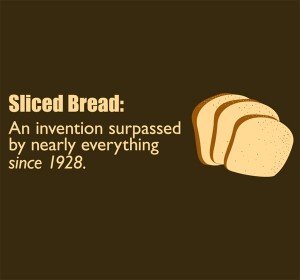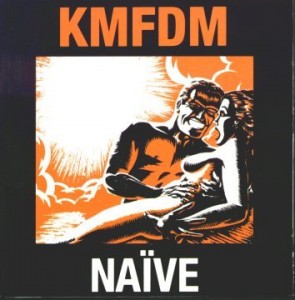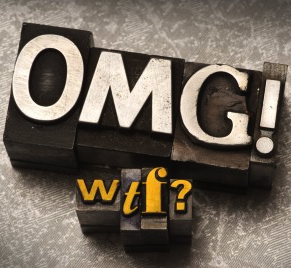 I admittedly read a lot of Indie publications. I think the Amazon KDP free list is the best thing since sliced bread and get a lot of book from it. Most of which come from small, independent presses or self-published authors. I do occasionally read traditionally published books, however, and my favourite genre is paranormal/urban fantasy romance. But I’m in a bit of a quandary at the moment.
I admittedly read a lot of Indie publications. I think the Amazon KDP free list is the best thing since sliced bread and get a lot of book from it. Most of which come from small, independent presses or self-published authors. I do occasionally read traditionally published books, however, and my favourite genre is paranormal/urban fantasy romance. But I’m in a bit of a quandary at the moment.
I’ve read 8 traditionally published paranormal romances this year and I’ve hated seven of them. In an attempt at fairness, I’ve made every effort to keep the venom out of my reviews, but some of these books elicited surprisingly strong feelings of repulsion in me. I found very little that I could have called redeeming qualities in some of them.
The most recent of which I reviewed on Goodreads and Amazon, but didn’t write a blog post for. It would have been the third traditionally published book in a row to receive a poor review from me. I was afraid of being accused of being the sort of Indie reader who tries to build the tradition up by tearing traditional authors down. I’m not. I’m really just not. But I was afraid that I would look like I am.
Now, some caveats, I of course realise likes and dislikes are extremely subjective and these 8 books have been from popular series/authors, so I’m not trying to  declare them ‘bad book’s or anything as prosaic as that. And in almost every case the writing was not an issue. So, I’m not disparaging the authors’ talents. But I disliked the books for the same reasons and it disturbs me that this seems to be an emergent trend in the genre. I’m not trying to suggest this trend, which I’ll get to in a moment, is exclusive to traditional publications either. Indies’ often mimic what is selling in the traditional realm, so I’ve seen the same thing there too, just not as strongly. Plus, Indies don’t have quite the reach of a popular traditionally published text. Lastly, since my goal is not to name and shame I’m not listing the titles.
declare them ‘bad book’s or anything as prosaic as that. And in almost every case the writing was not an issue. So, I’m not disparaging the authors’ talents. But I disliked the books for the same reasons and it disturbs me that this seems to be an emergent trend in the genre. I’m not trying to suggest this trend, which I’ll get to in a moment, is exclusive to traditional publications either. Indies’ often mimic what is selling in the traditional realm, so I’ve seen the same thing there too, just not as strongly. Plus, Indies don’t have quite the reach of a popular traditionally published text. Lastly, since my goal is not to name and shame I’m not listing the titles.
So, what’s got my panties in such a bunch, you ask? It’s two-fold, but essentially boils down to the portrayal female intellect and exceedingly unhealthy sexual relationships. It’s worth noting that the 8th book, the one I didn’t hate, was actually an M/M coupling and had no heroine to start with. So, I’m actually seven for seven.
Let’s start with the infantilization of women. In most of the books I’m talking about, the heroines have been treated like children by the male lead. Here’s a quote from one of my recent reviews,
His pet name for her is “little one,” as if she’s some toddler. Even my three-year-old wouldn’t stand for that. The narrative only seems able to describe her as small, fragile, innocent, and indiscriminately compassionate, all child-like attributes. Even the sex scenes make her sound like a child, full of her “soft whimpers,” “keening cries” and “sobbing breath.” He’s occasionally described as speaking to her, “softly, as if to a child” and she fills his mind “with a child’s wondrous laughter.”
That first point, the pet names, is almost a guarantee in most of the traditionally published PNR I’ve read of late. And they are never strong, empowering names. It’s always pet, little one, love, tid-bit, etc. They all carry a subtle condescension with them. Other than the habitual, stock sentence-enders like hun, sugar, etc, a person doesn’t tend to give pet names to equals. Nicknames, sure, but not pet names. That’s why it’s a pet name. A pet can be loved, cared for, and appreciated, but they are still generally owned and controlled by their masters. There is an assumed social hierarchy in the giving and receiving of such titles. I struggle to think of a single PNR in which the female gives such a cute moniker to the male lead.
Some of these cute names are supposed to refer to the size difference between the man and woman. I get that. She’s almost always little and he’s always huge. But even that only serves to exacerbate the issue. This drastic difference in size is called sexual dimorphism and, in nature, it’s most commonly found among polygynous species. Again suggesting male domination of females, as opposed to equality.
 Moving on, I’ve seen a real trend toward female leads that rush unthinkingly and determinedly into danger, often with a stubborn ‘I’ll show him’ attitude. Yes, this is supposed to make them bold and brave, but it’s also stupid and naïve. One particular heroine in this list of books did this so regularly that I began to wonder if she was supposed to be wholly unable to stop and think through the consequences of her own actions–much like a three-year-old who is unable to comprehend that running into traffic will get them hit by a car. And always there was a man there to snicker at her and point out the very obvious errors in her logic, or lack thereof.
Moving on, I’ve seen a real trend toward female leads that rush unthinkingly and determinedly into danger, often with a stubborn ‘I’ll show him’ attitude. Yes, this is supposed to make them bold and brave, but it’s also stupid and naïve. One particular heroine in this list of books did this so regularly that I began to wonder if she was supposed to be wholly unable to stop and think through the consequences of her own actions–much like a three-year-old who is unable to comprehend that running into traffic will get them hit by a car. And always there was a man there to snicker at her and point out the very obvious errors in her logic, or lack thereof.
Yes, I’m generalising a little bit. But I am also referencing one particular series and it’s running tendency to place the heroine in embarrassing position of her own making. And like a parent who finds their child’s precocious behaviour endearing, her love interest thinks this tendency is cute and attractive–yet one more example of the portraying of women as child-like.
Two more points and then I promise to move one. A common plot device lately seems to be the need for a man to find HIS mate. He then usually claims her in some fashion, be it a bite or mark of some sort or some elaborate ritual. The problem I keep encountering is that the books often wholly ignore the fact that this means she has found HER mate too. It’s rare that she marks her man in return or that there is a role for the woman in the ceremony. It’s all focused on the male staking a claim to a female. It’s very reminiscent of ages past when a man bought or was given a wife, who had no say in the matter of marriage or ownership. Haven’t feminist been fighting to free ourselves of this burden for years and years? Why would we so readily incorporate into our own entertainment?
 Lastly, there is the sex, OMG the sex! When did we decide that bondage was normal or that women really do enjoy being dominated and subjugated in bed? Where did all of the experienced, sexually self-assured, women who know what they want and are ready and willing to fully participate in sexual intercourse go? In almost all of the books referenced here the heroine was either a virgin or had very little sexual experience. What’s more, she was generally made love to, the couple didn’t make love, she was a passive participant for the most part. In each of them there was an example of either questionable consent, forced seduction, sex play that in real life would have been patently abusive, and/or the inference that the man knows more about how to please her than she knows herself, so he can and should ignore her requests, pleas, and demands and just do as he wishes.
Lastly, there is the sex, OMG the sex! When did we decide that bondage was normal or that women really do enjoy being dominated and subjugated in bed? Where did all of the experienced, sexually self-assured, women who know what they want and are ready and willing to fully participate in sexual intercourse go? In almost all of the books referenced here the heroine was either a virgin or had very little sexual experience. What’s more, she was generally made love to, the couple didn’t make love, she was a passive participant for the most part. In each of them there was an example of either questionable consent, forced seduction, sex play that in real life would have been patently abusive, and/or the inference that the man knows more about how to please her than she knows herself, so he can and should ignore her requests, pleas, and demands and just do as he wishes.
So, add all of this together and what do you have? You have a man who falls in love with a child-like woman that he can own, control and physically/sexually dominated. That just isn’t a plot-line that I would set out to read. But it seems to be a pretty common theme of recent traditionally published PNR, or at least the ones that have come across my TBR pile. Maybe it’s always been that way and I’ve just missed it. That’s a possibility. I think it’s probably more likely that the tendency has always been there, but that it has recently become more apparent.
One of theses books (the only one star I’ve ever given) played these themes so heavily that I half expected to get to the end of the book and find a note stating that the whole thing had been written as a thought experiment to see if readers still liked these themes when taken to their extremes, please send thought to…. It wasn’t the case though.
This saddens me. I’m not a longtime reader of PNR, having come to the genre relatively recently, but I am a heavy reader of it. I read a lot and a lot of what I read is PNR. I’d hate to give it up because the genre, as a whole, seems to be moving in a direction I can’t conscientiously advocate for.
I’d love some suggestions of series that avoid the above issues and really do have strong, self-assured, competent heroines. Many of the series I’m talking about here are touted as having just that, but they don’t. They just really don’t and it frightens me a little bit that women read them and seem to think that they do. Have we become so desensitised to the portrayal of our own subjugation and supposed social/intellectual inferiority that we really just don’t notice it anymore? *shudder*